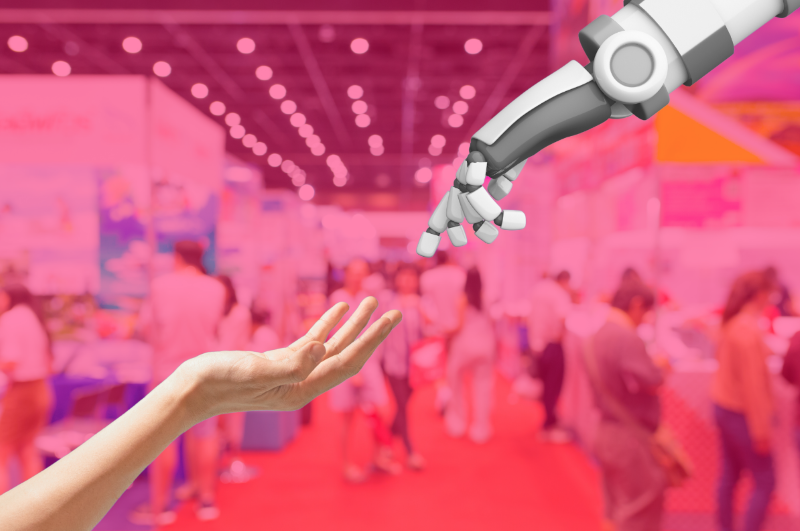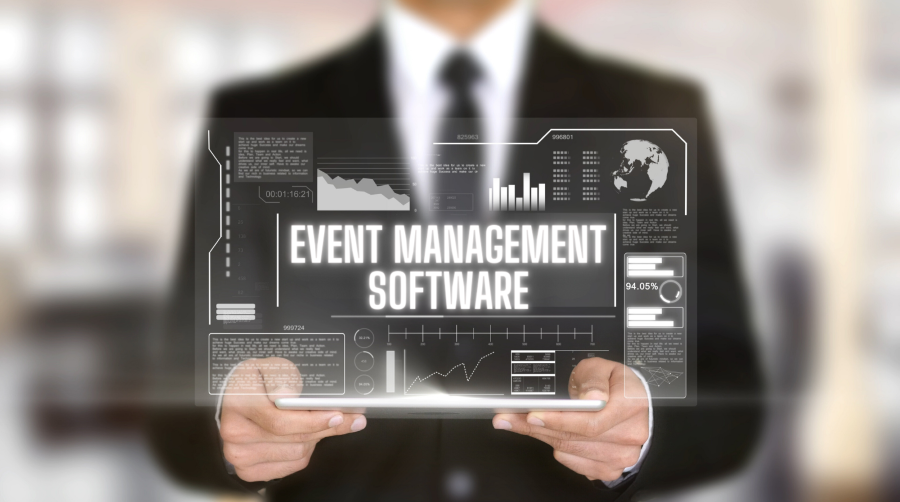In the ever-evolving landscape of event planning, technology continues to play a transformative role. One such technology that has gained significant traction is artificial intelligence (AI). With its ability to process vast amounts of data and deliver intelligent insights, AI offers event planners a powerful tool to enhance and streamline their event planning processes.
In this blog post, we will explore the various ways event planners can leverage AI to create exceptional attendee experiences and optimise their event management.
Data Analysis and Insights
AI empowers event planners with the ability to gain valuable insights from the sea of data available. By leveraging AI algorithms, event planners can analyse attendee data, social media trends and historical event information. This analysis can uncover patterns, preferences and trends which may have otherwise gone unnoticed.
For example, AI can identify attendee demographics, interests and engagement levels which can enable event planners to make data driven decisions. They can then tailor event content, optimise marketing strategies and enhance the overall attendee experience based on the insights found. These insights can be gathered in a matter of minutes, rather than hours, allowing the freed-up time to be allocated to other planning tasks.
Personalised Attendee Experiences
One of the most significant advantages of AI is its ability to deliver personalised experiences to event attendees. By leveraging attendee data and AI algorithms, event planners can create tailored event recommendations, session suggestions, and networking opportunities based on individual preferences, interests, and past behaviour.
AI-powered recommendation engines analyse attendee profiles, preferences, and engagement history to provide personalised agendas, relevant session suggestions, and opportunities to connect with like-minded individuals. This level of personalisation fosters higher levels of attendee satisfaction and engagement, ultimately making the event experience more memorable and impactful.
Chatbots and Virtual Assistants
AI-powered chatbots and virtual assistants have revolutionised attendee communication and support. These intelligent bots can handle attendee inquiries, provide real-time event information, assist with registration processes, and offer personalised recommendations.
Powered by AI algorithms, chatbots are equipped to understand natural language and can engage in human-like conversations. By integrating chatbots into event websites, mobile apps, or social media platforms, event planners can provide attendees with 24/7 assistance and support, enhancing communication and engagement throughout the event without the need of additional customer service employees.
Virtual assistants can assist event planners in many aspects of their role, including automating administrative tasks, managing schedules, providing reminders, and facilitating data organisation. They act as a virtual personal assistant for event planners, helping them stay organised and efficient in their planning and management processes.
While virtual assistants indirectly contribute to a smoother event experience for attendees by enabling event planners to focus on delivering a well-executed event, their primary function is to support event planners rather than directly interact with attendees as opposed to Chatbots who will directly interact with attendees.
Event Logistics and Operations
AI brings automation and efficiency to logistical tasks associated with event planning. For instance, AI algorithms can optimise venue selection by analysing factors such as attendee capacity, transportation accessibility, facilities and historical data. By considering these factors, AI can recommend the most suitable venues that align with the event's objectives and attendee needs.
Budget management becomes more accurate as AI predicts costs based on historical data and market trends, enabling event planners to allocate resources effectively. Additionally, AI can automate event scheduling, resource allocation, and vendor management, streamlining operations and saving valuable time. By reducing manual tasks, event planners can focus on strategic decision-making and delivering a flawless event experience.
Hybrid Event Experiences
In the era of virtual and hybrid events, AI can help to elevate engagement and interactivity. AI-powered features like virtual reality (VR) and augmented reality (AR) create immersive experiences for virtual attendees, simulating the excitement of physical events.
AI algorithms analyse real-time attendee feedback and sentiment during virtual sessions, enabling event planners to adapt and enhance the event experience in real-time. By monitoring attendee engagement and reaction to the event as it is happening, event planners can adjust session formats, content delivery, and networking opportunities to maximise attendee satisfaction and engagement. AI also enables virtual event platforms to offer personalised recommendations for networking connections and relevant content, creating a more meaningful and personal experience for attendees in the virtual environment.
Final Thoughts
Artificial Intelligence is a game-changer for event planners, offering innovative ways to enhance attendee experiences and streamline the event management processes.
By leveraging AI's data analysis capabilities, event planners can make informed decisions and tailor their strategies to meet attendees' needs. Attendee personalisation, powered by AI, creates meaningful connections and ensures attendee satisfaction.
Additionally, AI-driven automation simplifies logistical tasks, saving time and resources. As hybrid events become more prevalent, AI continues to play a pivotal role in delivering immersive and interactive experiences. Embracing AI as a valuable tool alongside human expertise, event planners can take their events to new heights, creating memorable experiences that leave a lasting impact on attendees.
For more helpful tips for event planning, visit ExpoBeacon Insights and news.






